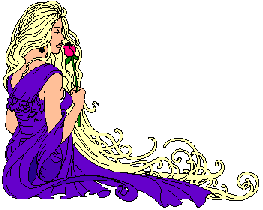I do not wish (women) to have power over men, but over themselves.
—Mary Wollstoncraft

About.Com's Women's History Search Engine — An amazing resource for research!
Distinguished Women of Past and Present — This site has biographies of women who contributed to our culture in many different ways. There are writers, educators, scientists, heads of state, politicians, civil rights crusaders, artists, entertainers, and others. Some were alive hundreds of years ago and some are living today. We've heard of some of them, while many more have been ignored by history book writers.
Duke University's Documents from the Women's Liberation Movement — The materials in this on-line archival collection document various aspects of the Women's Liberation Movement in the United States and focus specifically on the radical origins of this movement during the late 1960s and early 1970s. Items range from radical theoretical writings to humorous plays to the minutes of an actual grassroots group.
Emory Women Writers Resource Project — The Emory Women Writers Resource Project is a collection of edited and unedited texts by women writing in English from the seventeenth century through the nineteenth century. The project is a pedagogical tool designed to offer graduate and undergraduate students in various disciplines the opportunity to edit their own texts.
Exploring Constitutional Conflicts — Women's Fight for the Vote: The nineteenth amendment is discussed. The issues involved are: Should the fourteenth amendment be interpreted as guaranteeing to women the right to vote? How did women finally win the right to vote?
MBA Online — This website gives information about the history and present situation concerning women in the workforce. Women have gone through many hardships for centuries in order to be seen as equals among men. It was been a hard fight to find their way into the workforce that for so long was dominated by men. Women still face the challenges of the glass ceiling and being discriminated against in the workplace, but it is only a matter of time before the world realizes how much the benefits would be hugely beneficial for the economy and world's future.
National Museum of Women in the Arts — The National Museum of Women in the Arts (NMWA) brings recognition to the achievements of women artists of all periods and nationalities by exhibiting, preserving, acquiring, and researching art by women and by educating the public concerning their accomplishments.
National Women's History Project — A nonprofit corporation founded in Sonoma County, California, in 1980. We are self-supporting through funds raised from the sale of materials, consulting services, and donations from our national constituency.
Schlesigner Library on the History of Women in America, Radcliffe College — The Schlesinger Library draws thousands of researchers each year to study the history of women in the United States. The library holds letters and diaries, photographs, books and periodicals, ephemera, oral histories, and audiovisual materials that document the history of women, families, and organizations, primarily in the nineteenth and twentieth centuries.
Victorian Women Writers Project — The goal of the Victorian Women Writers Project is to produce highly accurate transcriptions of works by British women writers of the nineteenth century, encoded using the Standard Generalized Markup Language (SGML). The works, selected with the assistance of the advisory board, will include anthologies, novels, political pamphlets, religious tracts, children's books, and volumes of poetry and verse drama. Considerable attention will be given to the accuracy and completeness of the texts and to accurate bibliographical descriptions of them.
Women Nobel Prize Laureates — In 1903, only two years after the Nobel Foundation was established, a Nobel Prize was awarded to a woman, Marie Curie, for the first time. Women have been winning Nobel Prizes ever since. In fact, one woman, Bertha von Suttner, was influential in convincing Alfred Nobel to set aside a prize for peace. Women have won prizes in all categories with the exception of Economics (which was established in 1968 and first awarded in 1969).
The Woman's Rights Movement — The American Woman's Rights movement grew out of abolitionism in direct but complex ways. This site lists texts taken from The History of Woman Suffrage by Elizabeth Cady Stanton, Susan B. Anthony and Matilda Gage: Vol. I: 1835-1860 (New York: Fowler & Wells, 1881).